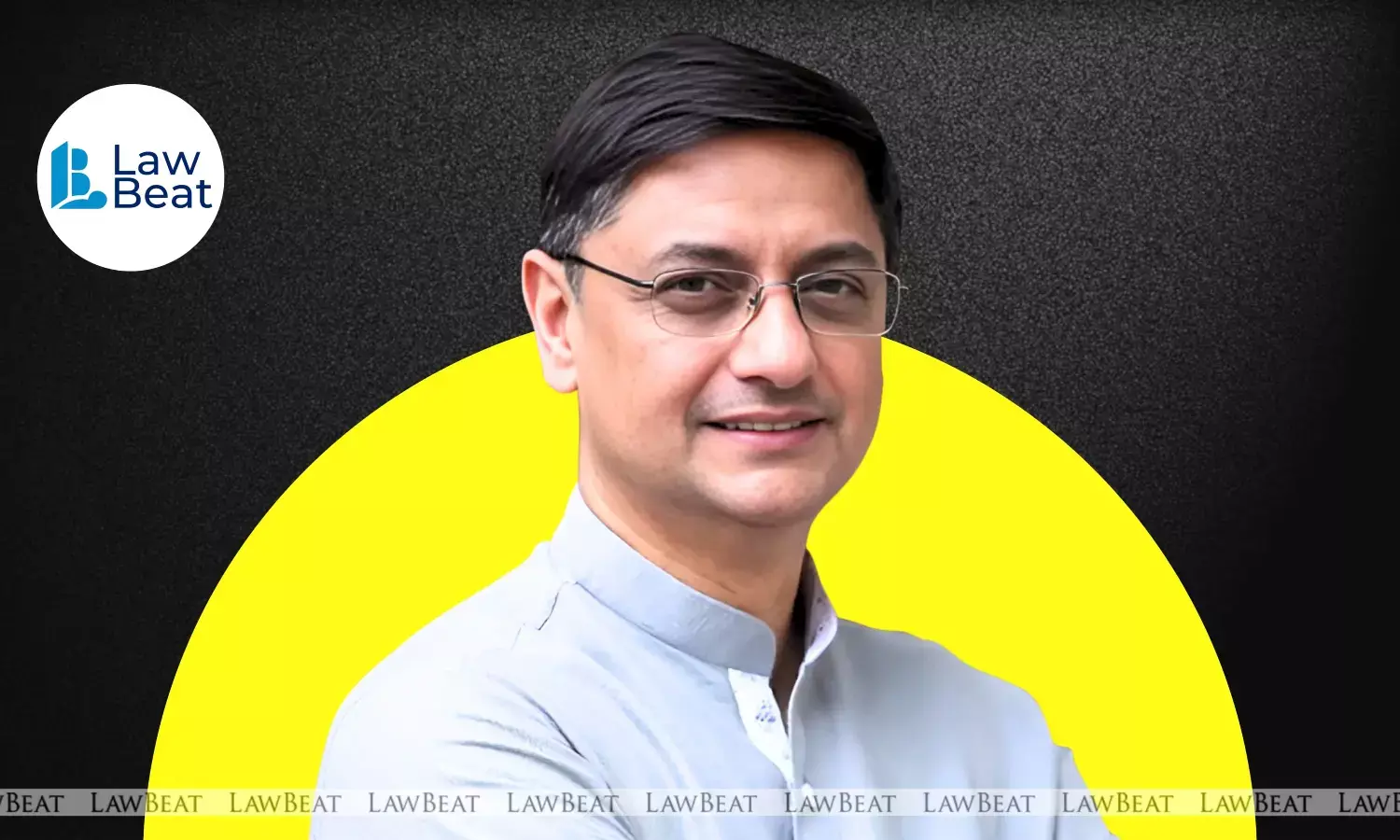Advocate Hits Back at Sanjeev Sanyal: Calls Judiciary “Hurdle” Claim Misleading, Seeks Clarification

Advocate Hitendra Gandhi urges EAC member to clarify comments on judges’ role as India pushes for Viksit Bharat
In a strongly worded note to Sanjeev Sanyal, Member of the Prime Minister’s Economic Advisory Council (EAC), Advocate Hitendra Gandhi has sought clarification on the latter’s recent characterization of the judiciary as the “biggest hurdle” to India’s economic ambitions.
Gandhi, writing in his capacity as a Member at the Bar, Mumbai, emphasized that the judiciary is not merely an administrative institution but the guardian of the Constitution and the sentinel of the rule of law. He noted that describing it as a “hurdle” requires careful qualification, warning that such remarks risk misrepresenting the balance of powers fundamental to India’s democratic framework.
The Advocate also expressed concern over Sanyal’s use of the term “lordship” to describe judges, cautioning that such language may inadvertently erode public confidence in the judiciary and diminish its constitutional stature.
Gandhi highlighted that the office of a judge is one of trusteeship on behalf of the people, not of lordship, and that public discourse about judges should reinforce faith in institutions rather than weaken it.
In his letter, Gandhi posed several pointed questions to Sanyal, including:
1. The precise nature of the difficulties the judiciary poses, if any, to economic reform and development.
2. Whether such difficulties are due to judicial delay, interpretation, or structural aspects of adjudication.
3. How these challenges can be addressed without compromising judicial independence, which he describes as a safeguard for the people rather than a privilege for judges.
4. How the term “lordship” aligns with the principle of constitutional equality that underpins the Republic.
Gandhi stressed that economic reform and constitutional governance must operate as allies rather than adversaries, noting that “the project of building Viksit Bharat will not be accomplished by weakening one pillar of the State to strengthen another.” He urged Sanyal to clarify his position to ensure better public understanding and preserve institutional harmony, which he described as indispensable to the Republic.
In a related news, two Supreme Court Advocates have written to Attorney General R. Venkataramani seeking his consent to initiate criminal contempt proceedings against Sanjeev Sanyal for his recent public remarks criticizing the judiciary and the legal profession. In a detailed representation dated September 25, 2025, Advocates Rohit Pandey (former Honorary Secretary, Supreme Court Bar Association) and Ujjawal Gaur submitted that Sanyal’s statements amounted to a sweeping attack on the judicial system and crossed the permissible boundaries of fair criticism under Article 19(1)(a) of the Constitution.
The letter, addressed to the Attorney General, invokes Section 15 of the Contempt of Courts Act, 1971 read with the Supreme Court’s contempt rules, seeking approval to move the apex court for initiation of contempt proceedings. The Advocates urged the Attorney General to grant consent, stressing that action was required not to suppress debate but to affirm that public confidence in the judiciary cannot be undermined by sweeping and disparaging remarks from high public functionaries.
Earlier, Advocate Shashi Ranjan Kumar Singh had also formally requested the AG to allow criminal contempt proceedings against Sanjeev Sanyal over his recent remarks on the judiciary.
In a related news, Senior Advocate Vikas Pahwa has written a strongly worded letter to Sanjeev Sanyal, Member of the Economic Advisory Council to the Prime Minister (EAC-PM), taking exception to his recent public remarks describing the judiciary as the “biggest hurdle” in India’s aspiration to become Viksit Bharat. Pahwa said such sweeping criticism risks undermining the very institution that is “the backbone of our Constitutional framework.” While acknowledging the importance of reforms and efficiency, he underlined that judicial independence and constitutional oversight cannot be sacrificed for speed alone.
In the detailed letter dated September 23, 2025, Pahwa wrote, “The judiciary does not obstruct progress, it ensures development within the framework of Constitutional values, liberty and fairness. To call it the biggest hurdle is extremely unfortunate.”
He added that delays in justice are often the result of systemic shortages of judges and inadequate infrastructure, failures that require executive support, not judicial blame. “A nation’s progress cannot be measured merely by the speed of contracts or clearances; it must be judged by whether liberty, justice and equality are preserved along the way,” he said.
Notably, earlier, in May, Sanjeev Sanyal had also advocated for reforms in the judiciary and the collegium system. He had stated “We will have to change the justice system. Think about this 'tareekh pe tareekh' system. What is this? We say this is from the colonial time. For seventy-five years we have the same system… The High Courts and the Supreme Court take leave in summer and then take leave again in Dussehra. What is this system? They work for a few hours. All these old systems will have to be changed, and modernise it. The government can contribute to this to some extent. But in the end, the justice system will have to do it on its own”.
Letter date: September 26, 2025
